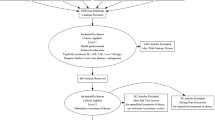Abstract
The New Zealand Ministry of Education identifies ‘Teaching as Inquiry’ (TAI) in the New Zealand Curriculum as an effective professional learning approach in promoting student learning and raising achievement. Aligned with this document, Auckland University of Technology Master of Teaching and Learning programme for postgraduate students wishing to become teachers provides practitioner inquiry-based papers to prepare them for engagement in inquiry. This article explores the construct of ‘Teaching as Inquiry’. A phenomenological position explores beginning teachers understanding of ‘self’ as an inquiring practitioner amidst tensions of school-based administrative systems and structures juxtaposed with theoretical knowledge of TAI. Findings from this study acknowledge that the Ministry’s TAI model significantly contributes towards development of ‘self’ as an inquiring practitioner. The findings caution, however, that challenges faced in the first year of teaching are not easily dismissed and contextual analysis of classroom and school practice to support competencies and capabilities for TAI is necessary.
Similar content being viewed by others
References
Argyris, C., & Schon, D. A. (1974). Theory in practice: Increasing professional effectiveness. San Francisco: Jossey-Bass.
Brown, K. W., Ryan, R. M., & Creswell, J. D. (2007). Mindfulness: Theoretical foundations and evidence for its salutary effects. Psychological Inquiry, 18(4), 211–237.
Chong, S. (2011). Development of teachers’ professional identities: From pre-service to their first year as novice teachers. KEDI Journal of Education Policy, 8(2), 219–233.
Clark, S. K. (2012). The plight of the novice teacher. The Clearing House, 85, 197–200.
Cochran-Smith, M., Barnatt, J., Friedman, A., & Pine, G. (2009). Inquiry on inquiry: Practitioner research and student learning. Action in Teacher Education, 31(2), 17–32.
Conner, L. (2015). Teaching as Inquiry with a focus on priority learners. Wellington, New Zealand: NZCER Press.
Cresswell, J. W. (1995). Research design: Qualitative and quantitative approaches. Thousand Oaks, CA: Sage Publications Inc.
Darling-Hammond, L. (1996). The right to learn and the advancement of teaching: Research, policy and practice for democratic education. Education Research, 25(6), 5–17.
Fenwick, A. (2011). The first three years: Experiences of early career teachers. Teachers and Teaching Theory and practice, 17(3), 325–343.
Goodwin, B. (2012). Research says new teachers face three common challenges. Educational Leadership, 69(8), 84–85.
Groundwater-Smith, S., Ewing, R., & Le Cornu, R. (2015). Teaching challenges & dilemmas (5th ed.). Auckland, New Zealand: Cengage Learning.
Hall, G. E. (1982). Induction: The missing link. Journal of Teacher Education, 33(3), 53–55.
Hargreaves, A. (1994). Changing teachers, changing times: Teachers’ work and culture in the postmodern age. London: Teachers College Press.
Hopkins, D., Ainscow, M., & West, M. (1994). School improvement in an era of change. London: Sage.
Ingersoll, R. (2002). The teacher shortage: A case of wrong diagnosis and wrong prescription. NASSP Bulletin, 86(631), 16–30.
Krathwohl, D. R. (2009). Methods of educational research and social science research (3rd ed.). Long Grove, IL: Waveland Press Inc.
Lawson, H. A. (1992). Beyond the conception of teacher induction. Journal of Teacher Education, 43(3), 162–172.
Lortie, D. C. (1975). Schoolteacher: A sociological study. Chicago: University of Chicago Press.
Madriz, E. (2003). Focus Groups in Feminist Research. In N. K. Denzin & Y. S. Lincoln (Eds.), Collecting and interpreting qualitative materials (pp. 363–388). Thousand Oaks, CA: Sage.
McCormack, A., & Gore, J. (2008). “If only I could just teach”: Early career teachers, their colleagues, and operations of power. Paper presented December 2008 at the Annual Conference of the Australian Association for Research in Education. Brisbane: Queensland University of Technology, Brisbane.
Melnick, S., & Meister, D. (2008). A comparison of beginning and experienced teachers’ concerns. Educational Research Quarterly., 31(3), 39–56.
Mezirow, J. (1981). A critical theory of adult learning and education. Adult Education Quarterly, 32(1), 3–24.
Ministry of Education. (2007). The New Zealand curriculum framework. Wellington: Ministry of Education.
Murray, L. (1992). What is practitioner based enquiry? British Journal of In-Service Education, 18(3), 191–196.
Robinson, V., & Lai, M. K. (2006). Practitioner research for educators: A guide to improving classrooms and schools. Thousand Oaks, CA: Corwin.
Rust, F. O. C. (1994). The first year of teaching: It’s not what they expected. Teaching and Teacher Education, 10, 205–217.
Schatz-Oppenheimer, O., & Divr, N. (2014). From ugly duckling to swan: Stories of novice teacher. Teaching and Teacher Education, 37(2014), 140–149.
Schon, D. (1987). Evaluating the reflective practitioner. San Francisco, CA: Jossey-Bass.
Schon, D. (1991). The reflective practitioner: How professionals think in action. Aldershot: Avebury.
Stoll, L., & Fink, D. (1996). Changing our schools. Buckingham: Open University Press.
Stoll, L., Bolman, R., McMahon, A., Wallace, M., & Thomas, S. (2006). Professional learning communities: A review of the literature. Journal of Educational Change, 7, 221–258.
Stringer, P. (2013). Capacity building for school improvement: Revisited. Rotterdam, The Netherlands: Sense Publishers.
Thomas, U., Tiplady, L., & Wall, K. (2014). Stories of practitioner enquiry: Using narrative interviews to explore teachers’ perspectives of learning to learn. International Journal of Qualitative Studies in Education, 27(3), 397–411.
Timperley, H. (2007). Teacher professional learning and development. Maidenhead: Open University Press.
Timperley, H. (2011). Leading teaching and learning through professional learning. Australian Educational Leader, 37(2), 6.
Timperley, H., & Parr, J. (2004). Using evidence in teaching practice: Implications for professional learning. Auckland: Hodder Moa Beckett.
Toole, J., & Beckett, D. (2013). Educational research—Creative thinking and doing. Sydney, NSW: Oxford University Press.
van Manen, M. (1997). Researching lived experience—Human science for an action sensitive pedagogy (2nd ed.). London, Canada: Althouse Press.
Wenger, E., McDermott, R., & Snyder, W. M. (2002). Cultivating communities of practice. Boston: Harvard Business School Press.
Wilkinson, S. (1998). Focus groups in feminist research: Power, interaction, and the co-construction of meaning. Women’s Studies International Forum, 21, 111–125.
Author information
Authors and Affiliations
Corresponding author
Additional information
Publisher's Note
Springer Nature remains neutral with regard to jurisdictional claims in published maps and institutional affiliations.
Rights and permissions
About this article
Cite this article
Stringer, P., Jhagroo, J. Towards a More Complete Understanding of ‘Teaching as Inquiry’: Perspectives of Beginning Teachers Explored. NZ J Educ Stud 54, 39–52 (2019). https://doi.org/10.1007/s40841-019-00131-6
Received:
Accepted:
Published:
Issue Date:
DOI: https://doi.org/10.1007/s40841-019-00131-6




